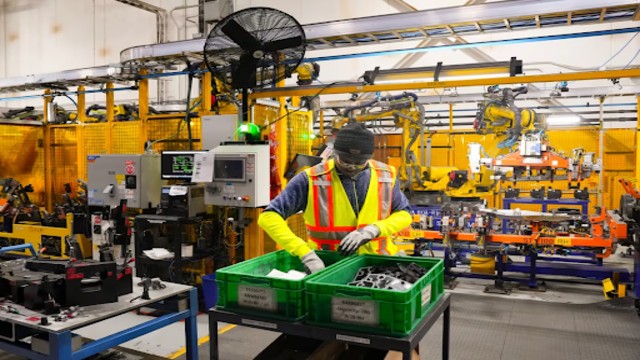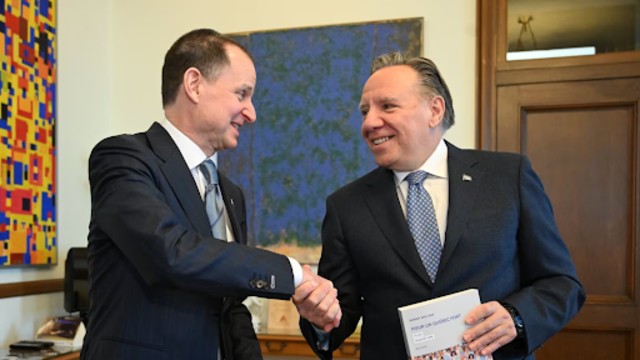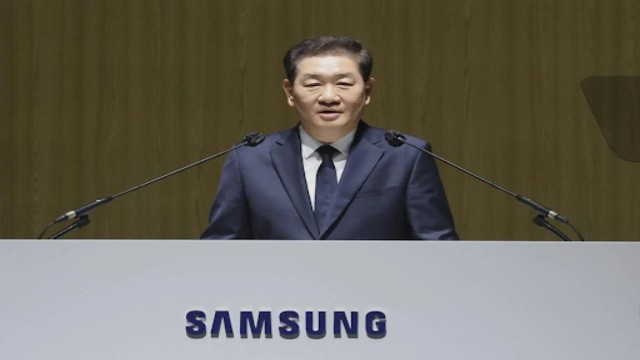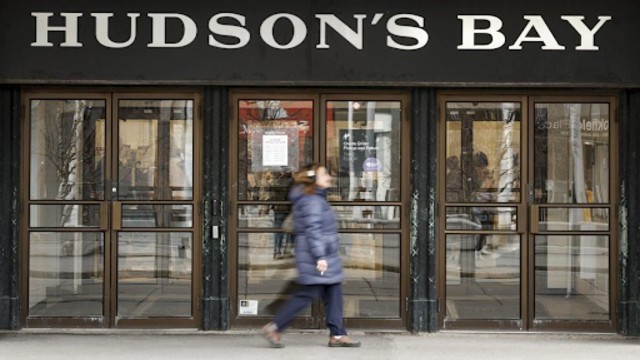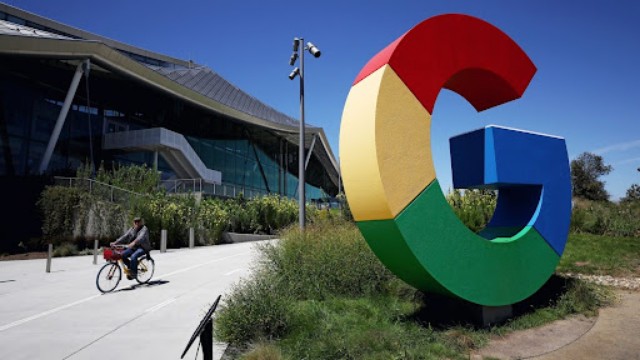
The logo for Boeing appears on a screen above a trading post on the floor of the New York Stock Exchange, July 13, 2021. Boeing Co. is expanding its sizeable footprint in Canada, becoming the anchor tenant of a new innovation zone in the Montreal area. THE CANADIAN PRESS/AP/Richard Drew
Boeing Co. has committed $240 million to support an aerospace initiative in the Montreal area, as part of Quebec's endeavor to establish itself as a global hub for drone and eco-friendly aircraft development
The investment from Boeing constitutes a significant portion of the $415 million pooled from private entities and the province to establish an aerospace "innovation zone," unveiled during an industry conference. This move fulfills part of Boeing's obligations stemming from a substantial contract with the Canadian government for surveillance planes.
The aerospace cluster, located across three main hubs in Montreal and its suburbs, has attracted investments from over a dozen companies, including Airbus, Boeing, and Bombardier. Premier François Legault hailed Quebec as the exclusive home to major aviation players, emphasizing the region's favorable business environment and skilled workforce.
Government funding of $85 million will support the launch of this aerospace initiative, with Boeing's investment earmarked for various projects, including a development center in Saint-Laurent and support for Wisk Aero, a Boeing subsidiary focusing on electric flying taxis.
Boeing Global president Brendan Nelson expressed enthusiasm for Montreal's academic and industrial resources, emphasizing the collaboration's potential for advancing aircraft design, propulsion systems, and battery technology for electric vertical take-off and landing (eVTOL) aircraft.
Despite Boeing's commitment, concerns persist among Canadian airlines due to production delays and safety issues, particularly related to the 737 Max jet. However, some experts underscored Quebec's expertise in the aerospace sector, positioning it as an attractive destination for Boeing's investments.
In addition to Boeing's involvement, Quebec announced plans to acquire a stake in H55, a company specializing in electric propulsion systems. The province also highlighted partnerships with Airbus, Thales, and Jaunt Air Mobility, focusing on testing for eVTOLs and drones.
Airbus, meanwhile, revealed agreements with major Canadian airports and ZeroAvia to explore hydrogen storage and fuelling solutions, underscoring the potential role of hydrogen in aviation's transition to cleaner energy sources.
While Canada's hydrogen production mainly relies on natural gas, efforts are underway to explore cleaner production methods using renewable energy sources, aligning with global trends towards sustainable aviation.
Overall, Quebec's aerospace initiatives, buoyed by investments from Boeing and other industry leaders, signal a significant step towards advancing innovation and sustainability in aviation.





